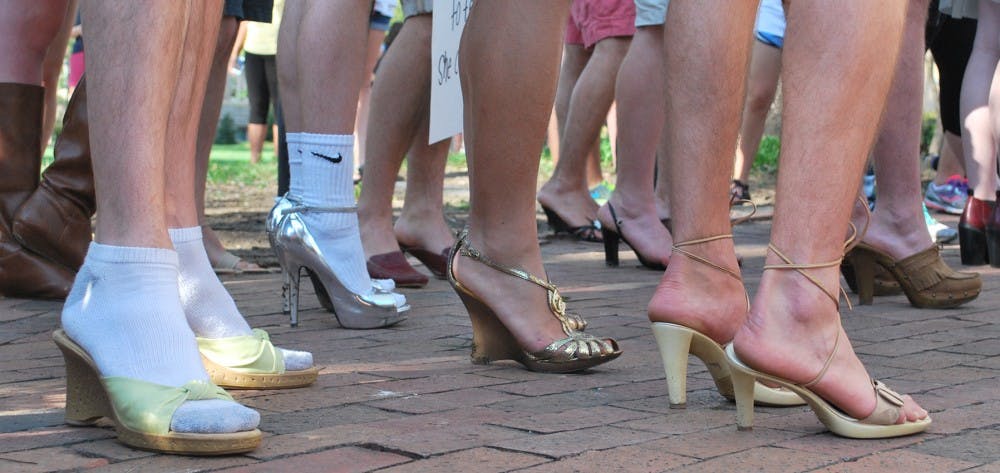Male-identifying students who enroll in UNC Men’s Project participate in a semester-long program and “explore a wide spectrum of masculinities, examine how our own stories are shaped by masculinity and gain the tools and knowledge to become peer allies, leaders and educators in violence prevention efforts at UNC,” according to the project’s website.
The project helped Fulton identify the positive and negative aspects of masculinity and how that relates to interpersonal violence, he said.
“We’re trying to get male voices involved in the conversation because it’s a conversation that requires all voices,” Fulton said.
Freshman social activist Alice Wilder said it’s important for men to use their voices to affect change.
“Men have a unique opportunity to be in male-dominated spaces and call out misogyny or rape-dominated culture,” Wilder said.
Bob Pleasants, interpersonal violence prevention coordinator for Student Wellness, said prevention training for men should not be entirely different than trainings aimed at other genders.
“I think old models of differentiating prevention training made the focus that all women could be potential victims and all men could be potential rapists, and I think that alienates everyone to a certain extent because no one wants to look at themselves that way,” he said.
One Act training focuses on people’s roles as bystanders and a discussion about what aspects of people’s identities makes them more or less likely to act as a bystander, Pleasants said.
“In that sense, trainings like One Act are built, we hope, to be inclusive and to approach people of all genders as allies and not as perpetrators or victims,” he said.
The push for involving men is not only happening on UNC’s campus. At Duke University, the Alice M. Baldwin Scholars Program and the Duke Culture Initiative launched the XY Campaign in 2013 to encourage men to talk about gender issues.
As a part of the campaign, male Duke students are invited to write positive statements about gender equality. The students and their statements are photographed and shared on the campaign’s Facebook page.
“Too often, we label gender discrimination and gender violence ‘women’s issues,’ which removes men from the conversation entirely,” said Duke sophomore and Baldwin Scholar Aarti Asrani in an email.
To get the day's news and headlines in your inbox each morning, sign up for our email newsletters.
Wilder said trainings for men should let men get involved in conversations about violence without dominating those conversations.
“It’s not good to come into spaces that are predominantly women and tell them what to do,” she said.
Pleasants said community plays an important role for men when the topic of interpersonal violence is addressed.
“I think some of the greater work we need to do around working with men is just creating more spaces on campus for men to be authentic with each other and to create a more positive, healthy masculinity,” he said.
UNC Title IX Coordinator Howie Kallem said the Title IX office, which is going through an expansion, is working to incorporate more groups on campus in its mission. The office will hire a program coordinator to work on student outreach.
“This is an issue that should be important to everyone on campus, regardless of your gender identity,” he said.
“The more people on campus who recognize this is an important issue, the more likely we are going to be able to change the culture on campus.”
university@dailytarheel.com




